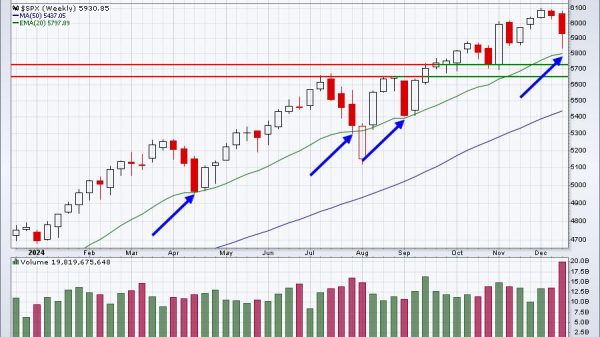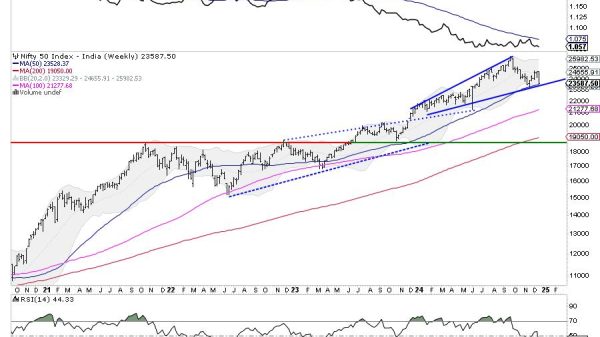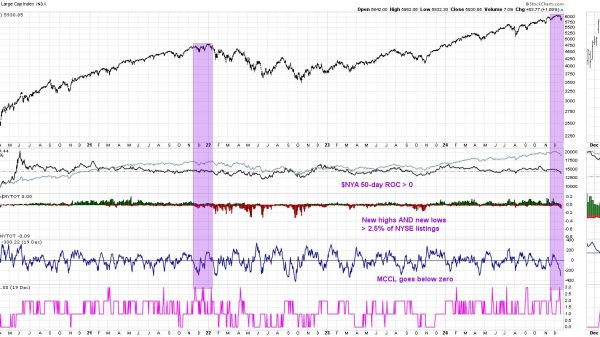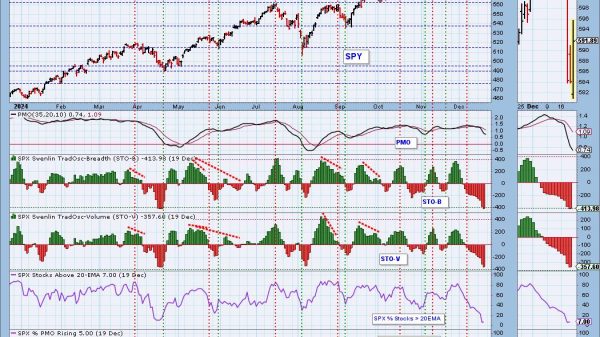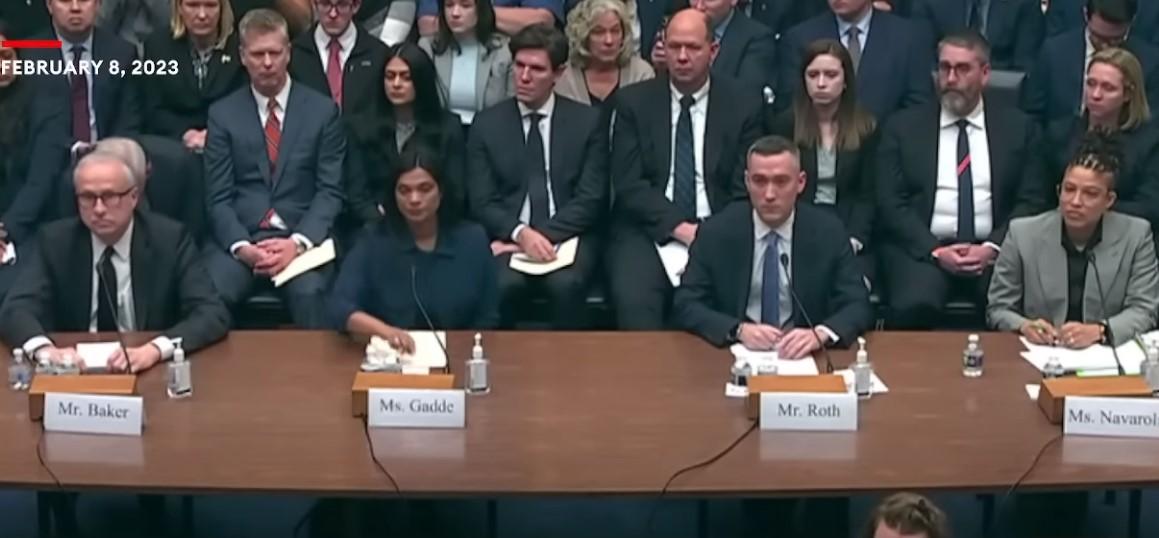Last Wednesday’s House Oversight Committee meeting provided some much-needed insight into how corporate personnel at Twitter (before Elon Musk’s takeover) had essentially turned the company into an adjunct of the federal government and its intelligence agencies.
Present to testify were high-ranking company personnel who oversaw Twitter during the covid panic and in the early days of the Hunter Biden laptop controversy. Specifically, they were former employees Yoel Roth, Anika Collier Navaroli, and Vijaya Gadde. All three had titles with words like “trust” and “safety” in them. There was also James Baker, a former Twitter attorney and a former FBI agent who promoted the now-disproven “Russiagate” theory. It was clear from their testimony that all four saw themselves as righteous arbiters of truth and that anyone who disagreed with their views was guilty of “misinformation.” Conveniently, this “misinformation” overwhelmingly tended to coincide with these employees’ personal political views.
In practice, however, these keepers of “trust” and “safety” did not function as disinterested fact-checkers, journalists, or stewards of any kind. They certainly weren’t entrepreneurs focused on delivering the highest value for their owners. Rather, they were acting as extensions of the US administrative state, the FBI, and the Democratic Party.
This became clear as they admitted to banning certain articles on their corporation’s platform and “shadow banning” countless stories. They did this either at the explicit urging of federal officials or in a way that just happened to support the regime’s preferred positions and policies. Moreover, it’s clear that these Twitter agents were happy to do this. (But explicit pressure from the regime would certainly not be anything new. It is now well documented that the Roosevelt administration heavily pressured the press and Hollywood to support US entry into World War II.)
Yet even if we accept the Biden administration’s shaky claims that there is no smoking gun tying the administration to Twitter policies, this only makes Twitter look worse. It would demonstrate that this private company is actively and voluntarily engaged in the business of using its position in the market to assist with pushing the regime’s efforts to silence dissent.
Corporate America’s Willing Cooperation
Unfortunately, Twitter is not alone in these sorts of activities. Throughout the covid panic, social media corporations including Alphabet (Google) and Meta (Facebook) routinely banned users and deleted posts that contradicted the “official” positions on a variety of policies. These three corporations worked tirelessly to promote those policies and “facts” favored by the federal Centers for Disease Control and Prevention (CDC) while hiding or explicitly denouncing as “misleading” or “misinformation” anything that dissented from the “official” position.
Thus, Twitter’s ban on the Hunter Biden laptop story was absolutely what we’ve come to expect from social media. Rather than carry information that corporate leaders didn’t agree with, they banned it or silenced it in a variety of ways. This occurred while the companies fraudulently claimed to be neutral “platforms,” although these companies are actually media companies that employ user-generated content to push the company’s preferred positions. These positions, of course, reliably coincided with what the FBI and other “intelligence” personnel—hardly a disinterested or unbiased bunch—claimed was the “correct” position.
All of this serves as an important reminder that private companies will often actively seek to serve the regimes they live under, and not just as a result of active regulation or “pressure” from regime officials. Contrary to the old myth that “big business” is a “persecuted minority,” the truth is that tech companies—and corporate America in general—have often shown they are enthusiastic supporters of the technocracy and its efforts to control and plan society.
Technolibertarianism, RIP
Twenty years ago, one still commonly encountered the opinion among advocates of free markets that the advent of the internet would make it far more difficult for governments to control the flow of information—and even the flow of goods and services. This “technolibertarianism,” as it is sometimes called, placed a great amount of hope in the notion that companies like Google and Amazon would enable ordinary people to publish and distribute ideas and goods that legacy media and other major corporations had no interest in fostering.
These were the days when Google’s motto was “Don’t Be Evil” and many people actually believed that workers at Google were somehow tribunes of ordinary people. Such a notion sounds outlandish and naïve today, but many reasonable people believed this in the heady days of the early 2000s, when anyone could start his own website and there was a flowering of antiestablishment online publications that did depart from what could be had in the so-called mainstream economy.
Moreover, thanks to the fact there was no dominant aggregator of the content produced by these sites, online news and commentary functioned in a much more egalitarian environment in which there was no final say on which web sites offered the “correct” view. Internet users, if they wanted to move beyond the usual mainstream media outlets at all, largely needed to curate their own information sources. The result was a highly decentralized internet with countless information sources that functioned on a more or less equal footing.
Social Media Centralized Online Information
Then came social media. Early on, this too was heralded as a new development that would make it even easier for antiestablishment and off-beat ideas to gain some traction with large numbers of people. In the early days of social media, after all, it was possible to post a narrative-bashing article or photo that might go viral if readers found it interesting.
In those days, the masters of social media had not yet begun their widespread efforts to manage and channel content in ways that suited their ideological preferences.
But here we are in 2023, and it’s quite a different story. Social media companies have managed to replace old-school self-curation with controlled “news feeds.” This is more “convenient” for casual users, so rather than place their trust in dozens of independent news sources, readers rely on one or two social media companies to tell them what to read and what to believe.
The new “entrepreneurs” who were supposed to usher in a new era of techno-rebellion against the state took on a very different form. Today, the tech “elite” looks like those Twitter executives. They are militant conformists who collaborate with the regime. They demand compliance—both in thought and in deed—with their preferred technocrats, ranging from CDC bureaucrats to shadowy intelligence personnel.
The dreams of technolibertarianism thus proved to be founded on very little. It is true that if one goes looking for it, one can find all sorts of information online that exposes state lies and corruption. Yet the regime has also found ways to distract from all this by amplifying its own positions at the expense of dissenting views, which are labeled “misinformation.” Countless millions, too lazy to investigate anything beyond their Facebook feeds, consume what they are told to consume.
Why They Favor the Regime
But why do the managers and officials of these companies seem to overwhelmingly side with the regime and its policies?
Much of the answer lies in the fact that these executives and other members of the elite have been educated to have the “correct” views. In recent years, it has become all the more apparent that voters with the most years of formal schooling are more likely to vote Democrat. If we assume that voting Democrat is a proxy for unquestioningly supporting the official government positions on most everything—not an outlandish position—then we can see the nexus between formal schooling and support for government mandates, lockdowns, and FBI meddling and spying.
This makes sense, of course. The faculty rolls at American colleges and universities are dominated by those who subscribe to a center-left ideology, tend to vote Democrat, and view the Washington technocracy favorably. People who spend a lot of time as students in these places tend to drift in the same direction. Unsurprisingly, the panel of former Twitter execs assembled for the House Oversight Committee meeting had numerous graduate degrees between them. It may be that some billionaires never finished college, but the reality is that these billionaires tend to hire people with graduate degrees to run their companies.
One might say it is all going to plan. As Julian Assange wrote back in 2013, the “new digital age” ushered in by the heroes of the technolibertarians is actually a blueprint for technocratic imperialism. It was founded largely on an ever-closer union between the US government and Silicon Valley.
This union was on full display at the House Oversight Committee meeting last week. Those who viewed the testimony were able to see what the masters of tech really believe about freedom and dissent. It turns out they think freedom of speech is dangerous. They think a tiny corporate elite is morally obligated to guide and control public discourse.
The Exploiter Class versus the Productive Class
This is all a helpful reminder that the true divide in society is not between the “private sector” and the “government sector.” Since at least the days of mercantilism, the private sector has often been eager to assist the regime in imposing more controls on the public. Rather, the true divide is between the exploiter class and the productive class. The productive are the true entrepreneurs, the net taxpayers, and those who receive no special favors from the regime. The exploiter class is the FBI, the bureaucracy, the tax collectors, and the other enforcers of the state’s regulatory apparatus. But the exploiter class also includes those “private sector” entities that seek to help the exploiters carry out their mission. Clearly, this includes a sizable portion of today’s corporate class, especially in Silicon Valley.











